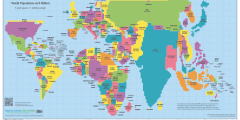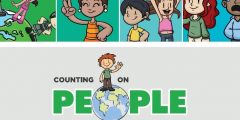Upcoming Webinars
Register to attend an online Population Education webinar. Our professional development workshops for teachers are high-quality, timely, and fun!
W8B Virtual Teacher Sessions: Ask, Share, Inspire
December 09, 2025
1:00 pm - 1:30 pm ET
Join the World of 8 Billion team and learn more about the student video contest. We’ll go over resources, answer your questions, and share tips and strategies for easy implementation and student success.
We are offering three Virtual Teacher sessions. Click the button to register and select the date/time that is best for you. Options include:
– Tuesday, December 9, 2025 – 1:00-1:30pm ET
– Wednesday, January 21, 2026 – 4:00-4:30pm ET
Lessons for Understanding Human Impact on the World’s Ocean
December 10, 2025
4:30 pm - 5:45 pm ET
In this interactive teacher workshop, participants will dive into hands-on lessons that explore the ocean. We’ll look at the challenges of overfishing, ocean pollution, and oil spills through modeling, research, and inquiry-based activities. This free, online workshop is packed with ideas for not only teaching human impacts on the world’s ocean but on what we can do to protect it. The showcased activities emphasize the importance of protecting the ocean’s vital marine ecosystems and discuss solutions to current ocean threats.
This webinar features lessons for grades 6-12 science, social studies, and ELA teachers, but all educators are welcome to attend. Everyone will take home access to an online lesson plan library that includes the spotlighted lesson plans and many more.
It’s time to empower students to address real-world environmental challenges with science and engineering practices.
Register
Past Webinars
Watch a past Population Education webinar on-demand.
Nice to meet you!
Tell us a bit about yourself so we can continue creating resources that meet your needs.
You’ll only need to fill out this form once. If you’ve already completed the form, you can confirm your email here.






